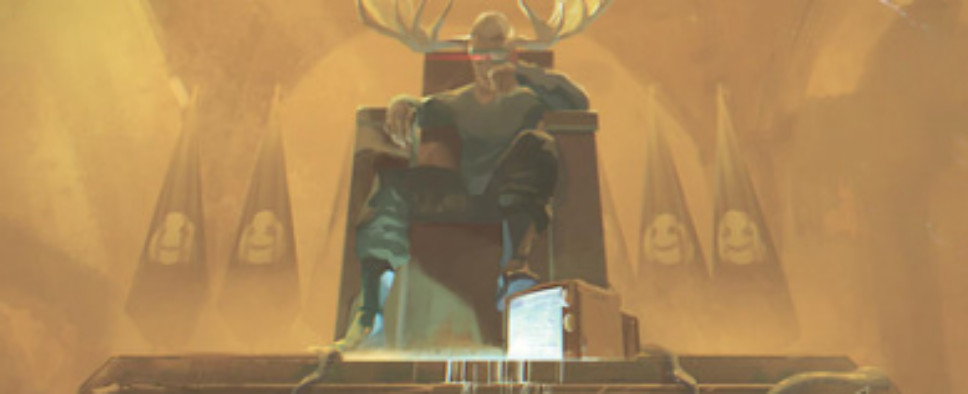Odd Gods - Gil Maclean Interview
-
Category: News ArchiveHits: 1310

Gil Maclean, the lead designer on the curious time-travel RPG Odd Gods, recently had a chat with Erik Meyer from indiegraze. The resulting interview is fairly in-depth and insightful, and covers quite a broad range of topics, including the game's phase-based combat system, its visual design, the importance of player freedom for RPGs, the trendy 1990's nostalgia, and more. An excerpt:
Erik Meyer: Odd Gods stands as a low fantasy isometric you describe as a, “hardcore ’90s-style RPG about the ’90s,” using subgenres and music in place of classes and alignments as characters travel through time. Given the grounding of the players in the recent past, do you envision the project as a love letter to that time, or do you see your work more as commentary uniting eras of the past with similar themes? I notice that alternate histories and rebellions play a huge role (the French Revolution never happened, for example), so what challenges have come from using a specific non-contemporary time and then changing timelines?
Gil Maclean: For me, RPGs are about player freedom – freedom to decide your own role and interpret the story as you see fit.
I see the 90s as a kind of ‘lost decade’, where underground subcultures and music were powerful – like a near-future version of the 60s, rebelling against mass commercialisation, brands raised to ‘deity’ status, and the cargo cults that followed. It was a pretty subversive period, like reality took a cue from John Shirley cyberpunk dystopian fiction and mashed it with a lyric sheet from Rage Against the Machine, and global zaibatsus taking control of the earth, like a modern pantheon of demons, or gods… You could get beaten up for a pair of branded shoes, or ostracised for listening to the ‘wrong’ music. Music was the dominant medium, really – people all over the world would hear the same music, watch the same music videos on MTV – the internet’s influence was not that significant yet. Music could start riots, change history, and set factions against each other. Conversely, subcultures bonded over themes, identity and crucially – music. It was like a… crossroads, between the analog and dawn of the the digital era, before we granted control of society to computer daemons made of code and driven by profit-seeking algorithms, and that conflict – and the power of subcultures and music – provoked a kind of cognitive dissonance, demonstrating a power which I think is interesting territory to explore.
You asked ‘is the project a love letter’ – Odd Gods is designed from the ground up as a period piece with a big dollop of anachronism. For that theme to work (or any theme explored in an RPG, I’d argue), yes – there has to be a ‘love letter’ aspect to it, but that’s just one aspect. We need to write that love letter, then burn it at the altar as a tithe. While the fire’s still crackling, sacrifice the nearest sacred goat and throw that on, too. Sift through the ashes and bones for burnt scraps of that letter and leave them for players to discover and maybe piece together in a way that makes sense to them.
Do I see OG as uniting eras of the past with common themes? Using one time period as a frame to explore another with time travel/alternate realities is basically saying: if we do our job well, abso-bloody-lutely. Exploring alternate history, which you do in Odd Gods, allows you to set up ‘what if’ scenarios and try out ideas. There were bright, burning periods of time where music, art, politics, and of course subcultures flourished – what if you shuffled them around a bit? What would the world look like?
As far as challenges go, it’s about executing the anachronism. What happens when worlds collide? On a macro scale, if you have a pantheon of pop culture demons and give them a time machine, what happens? We can re-enact Ash’s boomstick scene from Evil Dead 2, and it makes coherent sense in our world. What happens on an individual level to a Goth press-ganged into service on a privateer in the age of sail, a Ska Punk lost in Elizabethan times, or a Raver stumbling into a Pictish solstice ceremony in the time of Julius Caesar, or when a Grunge head wakes up in a jungle camp in the midst of the CIA’s secret war in Laos, or when you stumble across a lost tribe of Skateboarders deep in the Peruvian jungle. What effect does that have on history, and what does one reality matter?

